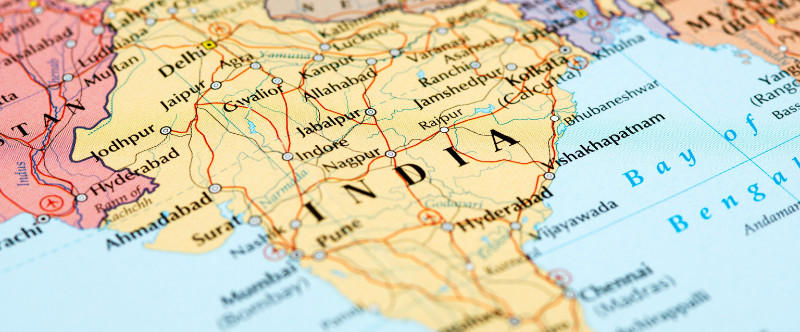Setting up a water purification plant in India or any other country is a daunting task. More often than not, snags in operation and several other factors can contribute to delaying the process. The cost of pharmaceutical plants is high, and mistakes can be expensive and damaging.
To avoid such a situation, it is very important to chalk out proper strategies and adhere to them to eliminate any lags in launching a project. Here is a guideline to follow for installing a water purification plant in India.
Project Planning
Planning is the biggest defense against delays and cost overruns. End product, budgeting, design, and quality control measures are some of the most important factors to consider during the planning stage. Scouting for the perfect location is also essential as it determines licensing requirements, and a good location is a great way to save money on logistics.
Documentation
Documentation is an essential step in the setting up of a water purification facility. Since most documentation processes take time, it is advisable to start the process early. While there may be some regional variations, most water purification plants in India require the following authorizations, licenses, and documentation:
- ISI certification issued by the Bureau of Indian Standards (BIS)
- BIS report on raw and processed water from a Local Water Testing Laboratory (LWTL)
- Food license issued by the Food Safety and Standard Authority of India (FSSAI)
- Small Scale Industry (SSI) Registration
- Pollution Control Certificate issued by State Pollution Control Board (SPCB)
Execution
Once the planning stage is completed it is now time to set the plan in action and get the plant up and running. Some of the important things to keep in mind during this stage are:
Choosing the Right Equipment
Water purification plants in India are dynamic not only in the products manufactured but also in the processes used in the manufacturing. Choosing proper, high-quality equipment not only guarantees consistent quality control but also eliminates the risk of expensive corrective measures.
Right Talent & Adequate Training
Just like any other business, attracting the right talent is key to a successful water purification plant in the pharmaceutical industry. Trained personnel prove to be the biggest asset when seeing a project through. The better we match the right individual to the right tasks, the more effective they will be at delivering the project. It is also important to conduct periodic training to ensure the workforce is up to date on the current industry practices.
Steady Supply of Raw Materials
No business can function properly if the raw material required for the business is not available in the right quantities at the right time. Managing the subcontractors is an essential part of this process.
The project chief should discuss the specific plan and ideas with the subcontractors before they begin the project. Inefficiency in choosing the subcontractors carefully would lead to frequent rework and unnecessary delays in project completion.
Solid Distribution Networks
No matter how good your product is, without a solid distribution network, it is of no use. Developing a network, however, takes time and the best way to start is to learn more about the industry, the processes, best practices and stay up to date on the internal happening of the pharmaceutical industry.
Having a sound logistics and transportation can also be a great place to start. The easier your goods can move, the better your chances of taking your business to the next level.
Operational Strategies
From the volume of the manufactured product to the maintenance system and durations, determining operational strategies is an integral part of the process.
As pharmaceutical products have a sensitive use case, hygiene is an important consideration in pharmaceutical companies. Adopting the right SIP and CIP strategies can offer several advantages and eliminate unnecessary risks.
Another important factor to keep in mind is wastewater treatment. The impact of pharma operations on water as a natural resource has been widely discussed in recent times. It is the responsibility of every pharma manufacturing company to adopt efficient wastewater management techniques to ensure that public health is not put at risk.
In addition to the above mentioned factors, it is a good idea to have a periodic and thorough self-assessment and inspection to make sure everything is running as it should be.
Effective Tips and Tricks
Maintain Records
The water system validation processes mandate keeping records, but even otherwise, it is a good idea to maintain proper records. Not only it makes the process of authorized inspections less daunting, but it also helps to notice emerging trends and get rid of any issues before they become too big to control.
Contingency Plans
No matter how much we try, things will go astray at times. It is essential to always have a contingency plan in place to tackle a sudden issue and have resources available to correct the same. Keep time for undiscovered work, such as budget and resource shortages or employee conflicts, and have ways to troubleshoot immediately.
Set Milestones
Assess the importance of activities and verify the work schedule. Adjust priorities for construction activities as found necessary. Time-sensitive tasks should be moved to the top of the list.
Apart from these issues, there may be a bevy of other problems that could result in your water treatment facility starting operations. It is important to not only look into potential issues at the site but also keep in mind fringe factors while planning the project. Foresight and experience allies while setting up a water purification plant in India or elsewhere.
While all businesses have a moral and social responsibility, when it comes to pharmaceuticals, the stakes are higher than the rest. Especially in a country like India, pharma companies play a huge role in shaping the health infrastructure of the nation. Understanding this responsibility and having measures in place to act upon it is the deciding factor that separates an acceptable pharma company from a successful one.
You might find these interesting –






